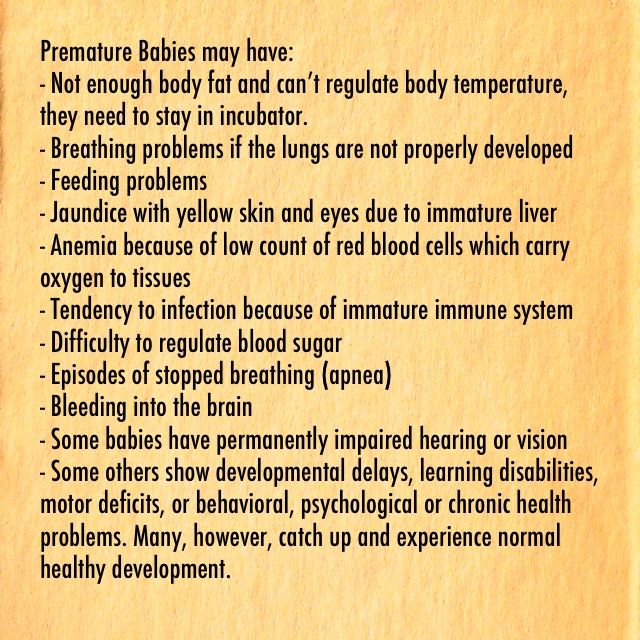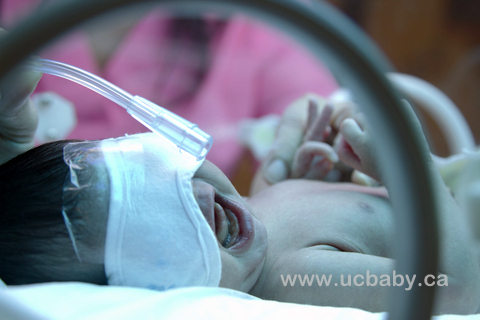Premature birth (or Preterm Birth) occurs in about 12 % of overall pregnancies, but it goes up to 60% for multiple deliveries. Premature or preterm babies are also called preemie. A baby born before 37 weeks of pregnancy is a preemie. A full-term pregnancy is 40 weeks.
There are different levels of prematurity depending on the week of prematurity. Babies born before 26 weeks are at the highest risk for health problems. Eighty percent (80 %) of those born after the 30th week have minimal long-term health or developmental problems.
Since they are not fully developed, preemie’s lungs, digestive system, immune system and skin are not ready for the environment outside of mom’s body. With medical intervention and intensive care they can survive until they can handle life on their own.
Neonatal Intensive Care Units (NICU) can provide premiee’s special care. The NICU is equipped with respiratory and resuscitation gadgets, incubators, ventilators to monitor baby for 24/7.

Role of Parents:
As a natural reaction, mothers blame themselves for the early arrival of the baby. The reality however is the reason of premature birth is beyond mom’s control. Most of the time even medical experts don’t know why babies are born prematurely.
Instead of feeling guilty and building up stress, moms should get help immediately. Counselling can be helpful for overwhelmed and scared parents.
Being in close touch with NICU staff and learning how to give care to preemie is crucial for baby’s health. Parents’ skin contact with the baby is allowed in NICU when preemie is in stable condition. Get support from family or friends, find caregiver if you are dealing with emotional distress.
Establish your Milk Supply:
Preemie might not be able to take breast milk but pumping the milk and giving it later should be considered. It is the best nutrition for the baby and can be given with feeding tube or bottle. To maintain milk supply mothers should pump regularly. The breast milk can be stored and given to the baby once he/she is able to take it. The small babies need more frequent nursing. Breastfeeding moms should consult lactation experts to learn how to feed the baby.
Bringing Preemie Home:
It might need special arrangements with parents and NICU staff to bring the baby home. Parents have to be instructed and trained for baby’s extra needs before they take baby home. They need to consult the primary caregivers when there is any change of preemie’s condition at home. Parents with twins or multiple babies should arrange support for the care of the babies and the mom in the beginning.
Preemie(s) should be monitored by a paediatrician periodically to confirm baby’s healthy progress to normal development.
Written by: Tina I Ureten MD, RDMS, RDCS





 Invitez familles et amis à assister à cet événement mémorable de votre grossesse. Célébrez avec vos proches où qu’ils soient dans le monde ce moment spécial de lien avec l’enfant.
Invitez familles et amis à assister à cet événement mémorable de votre grossesse. Célébrez avec vos proches où qu’ils soient dans le monde ce moment spécial de lien avec l’enfant. Rien n’est plus beau que les battements de cœur de votre bébé. Enregistrez ce son pour toujours dans un Ourson Coup de cœur de UC Baby®. Il ne s’agit pas simplement d’un beau souvenir, mais aussi d’un moyen efficace qui apaise votre bébé pour l’aider à s’endormir.
Rien n’est plus beau que les battements de cœur de votre bébé. Enregistrez ce son pour toujours dans un Ourson Coup de cœur de UC Baby®. Il ne s’agit pas simplement d’un beau souvenir, mais aussi d’un moyen efficace qui apaise votre bébé pour l’aider à s’endormir.

